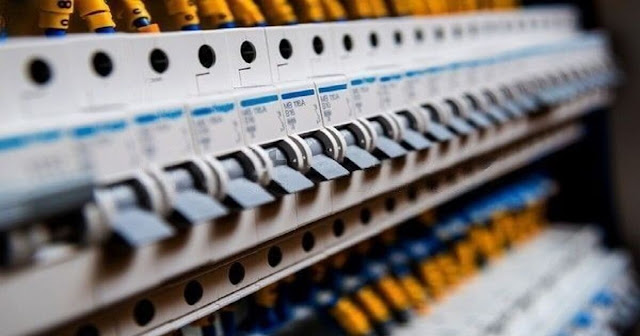Understanding Landlord Electrical Safety Certificate in 2023
It's safest to think of your home's fuse box, or consumer unit, as the nerve center of your electrical system. Do you know what to do when the power goes out, or there's a Landlord Electrical Safety Certificate at home? In that case, have you looked for your consumer unit? A lot of homeowners don't. Learning the ins and outs of your TV set-top box. Find your consumer unit before you need it. It's best to search for the consumer unit somewhere other than under the stairs, such as a corridor or an exterior cabinet.
Facilitating access convenience stores can be found at various levels, including on the ground under the steps. It's a good idea to maintain the space around your consumer unit free of clutter if you need to access the switches quickly. Similarly, hallway consumer units are typically mounted higher on a wall, so plan accordingly. Do not risk injury by standing on a chair to access the switches; instead, consider keeping a set of stepladders nearby.
Professional Electrical Services, including Inspections and Testing for Property Owners and Landlords
Checking Out the Scene Visually
Report on the property's condition based on an examination of its exterior.
EICR Cost London (Domestic Electrical Safety Inspection) (Domestic Electrical Safety Inspection)
The Landlord Electrical Safety Certificate has been thoroughly inspected and tested, with a detailed report detailing the findings and a planned timetable for future testing.
PAT (Portable Appliance Testing) (Portable Appliance Testing)
Inspection of appliances and gadgets that use electricity. Home appliances (ovens, toasters, coffee makers, etc.)
Realizing how the primary controls on wall-mounted equipment work There are three pieces of information worth noting that can be found on a fuse box:
Activator Tab
Electronics that Rely on a Constant Flow of Residual Current (RCD)
Protection switches for electrical circuits (or fuses)
Control Panel's Master Discretionary The "principal switch" is the primary control that has to be understood. This toggles the power in your home on or off. If there's an electrical problem, flip the main switch to the off position. The risk of electric shock and other injuries to you and your loved ones is significantly reduced. The main switch is the large red switch on the left side of most wall outlets.
The RCD is a safety feature common in modern consumer electronics. Many lives have been spared thanks to RCDs, which shut power if an item malfunctions, a person comes into contact with a live wire, or any other electrical problem is detected. It's simple to determine if a house has RCD safety features. Check the control panel of your consumer unit for a T or Test button. If your home has RCD protection, you should turn off the power before pressing the test button. New rules suggest you check your RCD every six months. If the lights do not go out when you click the Test button, there is likely a problem with the Landlord Electrical Safety Certificate that needs to be addressed by a licensed electrician as soon as possible.
Breakers in the circuit's Circuit breakers are the switches in a row on your consumer unit. These safeguard against electrical hazards; they are better than a fuse but less so than a residual current device (RCD). Your lights may have 'tripped' because a circuit breaker has tripped and turned off power to your home. If you check the consumer unit, you'll see that one of the switches is turned off. The lights can be turned back on by returning the switch to the "on" position.
Fuses In older fuse boxes, fuses serve the same function as circuit breakers. Often known as a rewireable fuse, the fuse consists of a wire sandwiched between two screws. The wire will melt if an electrical fault or overload goes across it. Removing power from the damaged component, this step breaks the circuit and, hopefully, prevents electric shock or harm.
Keep an eye out for stumbles. The frequent occurrence of Landlord Electrical Safety Certificate trips may be an indication of faulty wiring. Resetting the breaker too often could lead to expensive damage to the electrical system. An electrician licensed to work in your state should be consulted if frequent tripping is becoming an issue in your home.
Why an upgrade could be required It's not uncommon to find an old fuse box in a building that appears functional. Some fuse boxes are approximately 60 years old and have been there since the 1960s. However, the latest Landlord Electrical Safety Certificate and regulations make it worthwhile to consider an upgrade for your home. Your electrician may advise you to upgrade your fuse box if it has a wooden back, cast-iron switches, or multiple types of fuses. This is done so that you know your consumer unit will keep you safe in an electrical emergency. It is also recommended to upgrade if you do not have RCD protection.
Security in handheld devices A licensed electrician should only do any work involving a consumer unit. It's never worth risking your well-being to try to handle anything like that on your own. Furthermore, a consumer unit must be installed in compliance with Part P of the building standards. Part P certification from your electrician is required to ensure that the consumer unit was installed safely and under these standards.
Requesting a service call from London Property Inspections delivers the same level of convenience, safety, reliability, and professionalism that has helped millions of people thanks to our expertise in electrical safety inspections.



Comments
Post a Comment